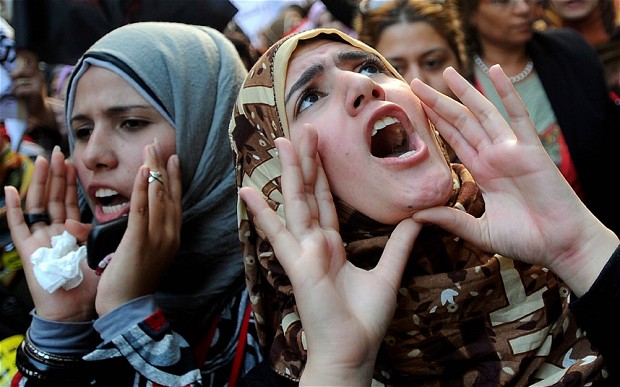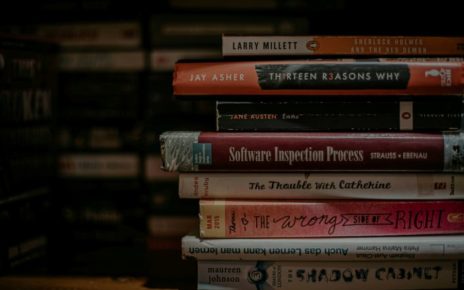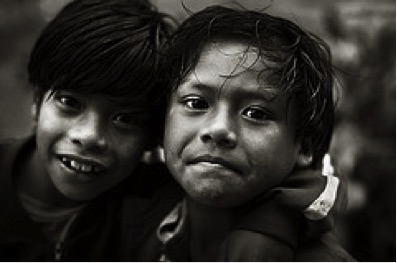What follows are the inspiring stories of three Egyptian women who witnessed the Egyptian Revolution and the discriminatory endeavors of the Mubarak regime. They each hope for a better future for women in Egypt.
Three Stories: Women’s Rights in Egypt
Lotfia El Nadi was a young, ordinary woman who worked at the Cairo airport as a secretary. However, she had great ambitions; she persuaded the Director of the Institute of Aviation to let her work free of payment in exchange for flying lessons. Hiding the flying lessons from her father, Lotfia’s mother helped her accomplish her dream to fly, which she desired because “she loved to be free.” After completing her first flight from Cairo to Alexandria, Egypt in December 1993 at the age of 26, El Nadi’s endeavors inspired other women to act under Nasser. For example, women achieved positions in universities and the parliament.
Deena Demradash is a 19 year old woman and art student from Cairo, Egypt who recently received attention for her comic strip about the adventures of a super-heroine named Quahera. Quahera is the Arabic version of Egypt’s capital Cairo, and can be roughly translated as conqueror; Quahera is a muslim woman who wears a hijab and fights off evil. Demradash undertook this project in response to her frustrations with the status of women after the 2011 Egyptian Revolution. Quahera can be seen battling harassment and chasing down male abusers while sporting her long black hijab. After posting the comic on her website, Deena has received more than 500 000 views since September, with the top viewers from Egypt and the US. With regard to her creations, Demradash says: “I wanted to send a message about the general Islamophobic backlash,” and “to shatter the stereotype that women who wear the hijab cannot be strong.”
[captionpix align=”left” theme=”elegant” width=”250″ imgsrc=”http://natoassociation.ca/wp-content/uploads/2013/12/71573200_protests3.jpg” captiontext=”Deena’s Comic”]
After witnessing the ongoing rise of sexual violence going unpunished in Egypt after the 2011 revolution, Mai Khaled and 12 other women enrolled in martial arts classes to ward off harassment. A recent article reported that Khaled “carefully watches her coach demonstrating self-defense techniques like hitting someone in the face or the knee.” Currently, Khaled, a 50 year old woman, learns martial arts from a women’s rights advocate group called Tahrir Bodyguard.
Women in public demonstrations faced heightened threats of harassment by the security apparatus, including the military and the Muslim Brotherhood. The regime paid thugs known as beltagiya to intimidate and violate women who participated in political demonstrations. Beltagiya violence is unrelenting; on December 17, 2011 during a demonstration against the Supreme Council of Armed Forces near Tahrir Square in Cairo, soldiers pulled a female protestor’s clothes off and dragged her on the ground. Khaled recognizes the necessity of groups, such as the Liberation Bodyguard, for their efforts to empower women.
Egypt Today
The status of women has degraded in Egypt, and the street harassment of women has become a daily phenomenon. The United Nations Entity for Gender Equality and the Empowerment of Women said in a recent report that 99.3% of Egyptian women have faced some form of sexual harassment (verbal or physical). The government is also at fault. After the 2012 election when the Muslim Brotherhood came into power, there were only 10% female members in Parliament out of the 508. President Morsi even attempted to rewrite the Egyptian constitution to eliminate the presence of the only female judge in the Supreme Court.
While there are many national and non-government initiatives aimed at helping Egyptian women, there still exists a disconnection between the West and Egyptian women. Demdarash’s comic strip tries to broaden the West’s understanding of Egyptian women and their cultural values is misinformed.
A snippet from Demdarash’s comic reads: “Look, it is a Muslim woman…Sister, take off your oppression!” Foreign countries and aiding bodies need to be educated on different cultural values to promote equitable progress. In order for the West to offer effective aid it must be in support of the activities and lifestyles of Egyptian women.
In 2002, Lotfia El Nadi died at the age of 95. Before her passing, she said: “I don’t recognize Egypt as it is now, but the Egypt that I knew will return; I am certain of it.” Similarly, Demdarash insists that her comic art is “less of a superhero comic and more of a tribute – to women who contributed to the revolution in so many ways.” Women in post-revolutionary Egypt need to engage in any form of resistance to gain their rights back.



